Child & Youth Development
In South Africa, we’re facing some critical challenges in education.
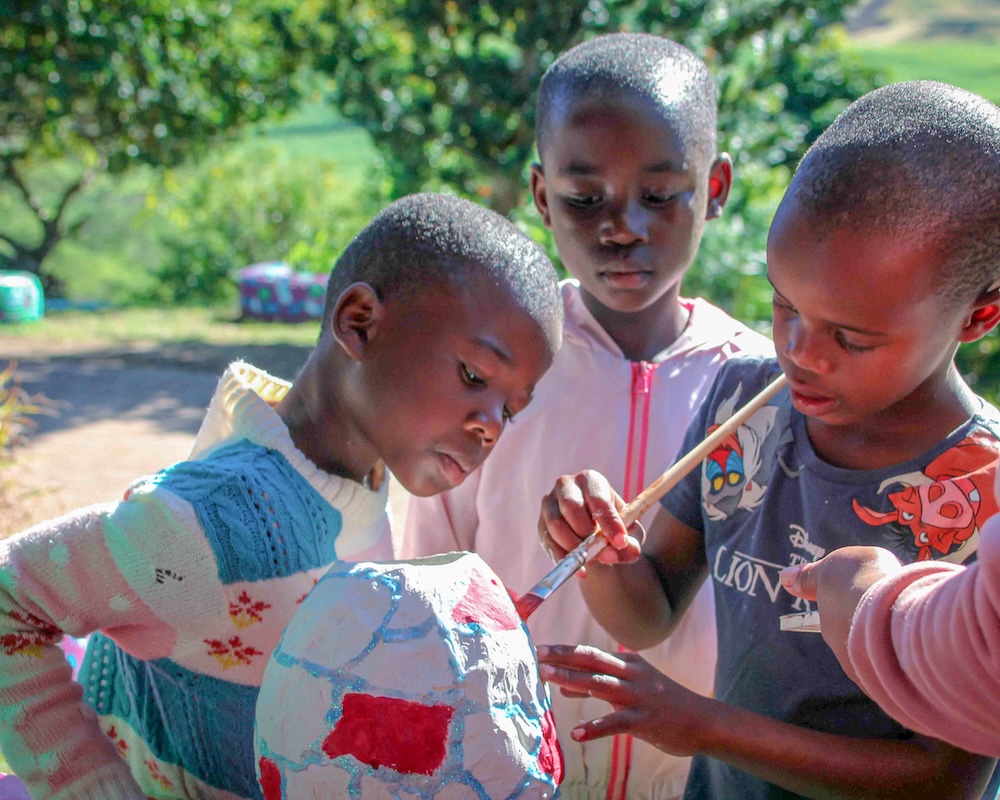
After the age of five, children attend local schools, but can still attend Thanda’s various afterschool and out-of-school programmes until the end of High School.
Our programmes help to guide children during an impressionable time in their lives with positive adult role models in a safe space. We encourage them to have discussions, ask questions, and become life-long learners. Through the development of strong self-esteem, critical thinking, and other social-emotional and inter-personal skills, children acquire a mindset of resilience, moving beyond existing limitations towards a lifetime of growth.
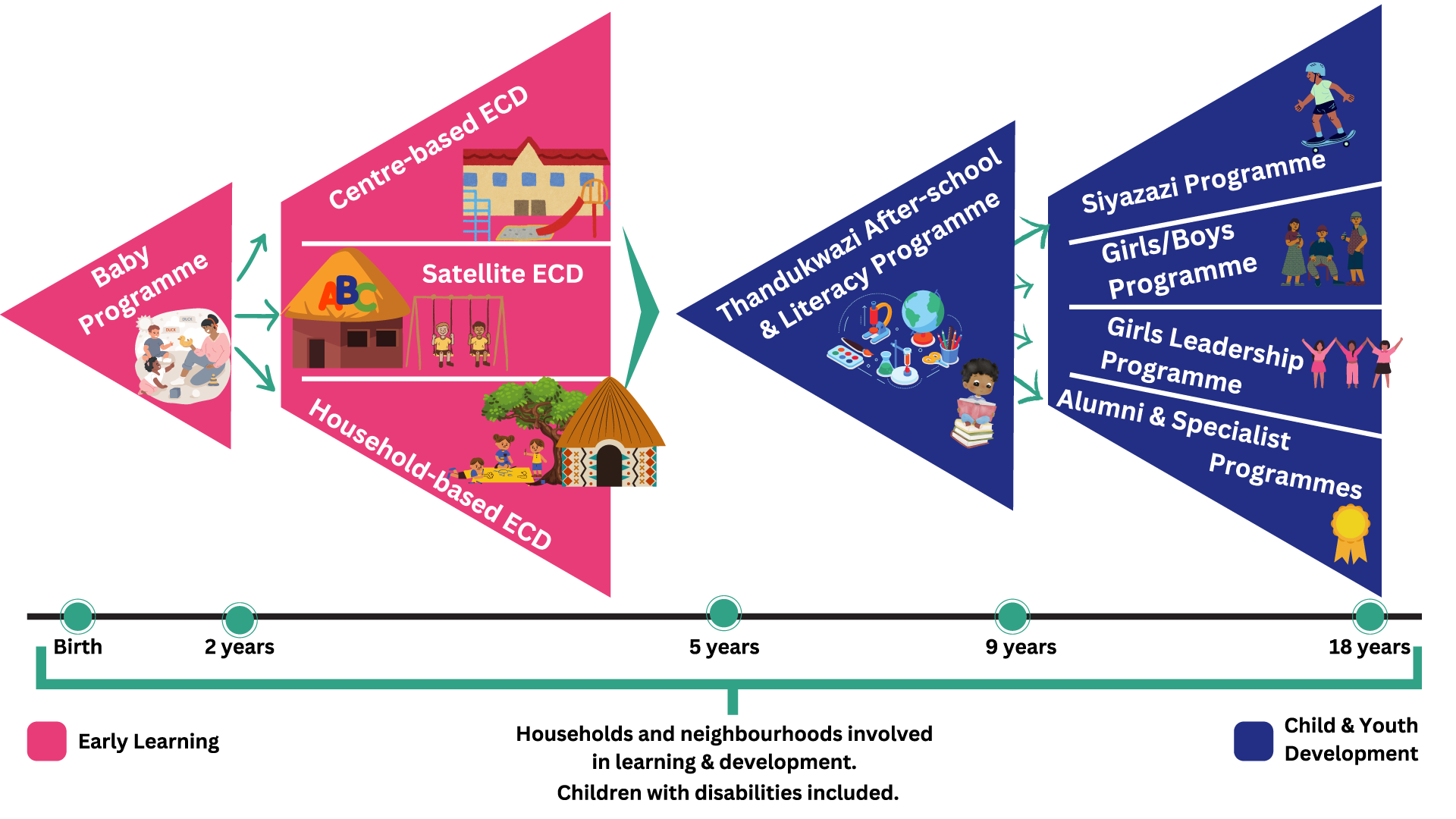
Households and neighbourhoods of the children who are enrolled in these programmes are also supported through routine Home Visits and Neighbourhood Learning Circles, which build everyone’s capacity in child development, household gardening, and creating a strong home learning environment. This is important because when everyone in a community is aligned on values and creating a safe learning environment, children thrive.
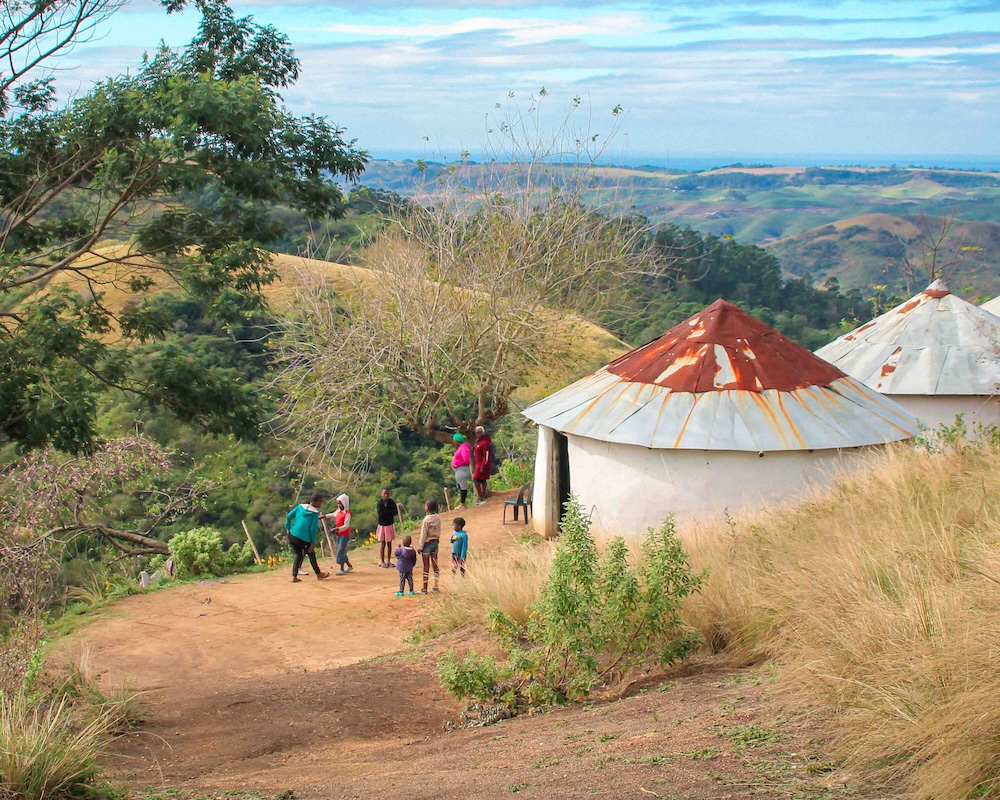
Thanda's programmes
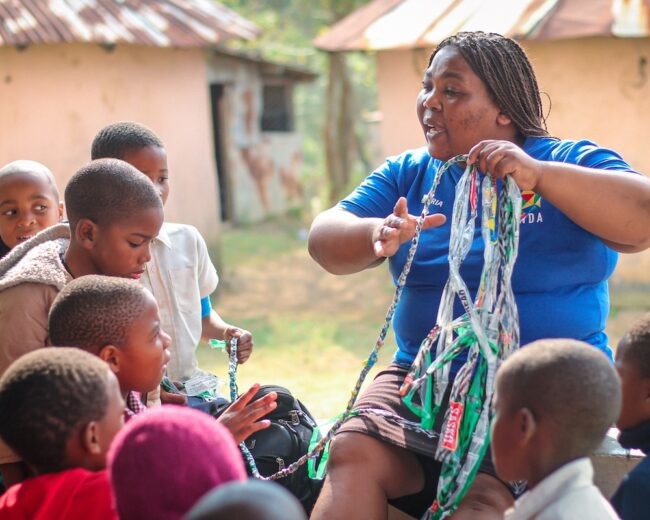
THANDUKWAZI
Thandukwazi means
‘BE CURIOUS’.
This programme for 265 children in Grades R-3 uses hands-on, FUN activities to develop skills that will enable children to succeed both in and out of school. Specifically, Thandukwazi aims to develop a child’s literacy, social-emotional skills, and curiosity about people and the world around them. Curiosity is where life-long learnership begins!
The programme takes place within the community at households that have offered Thanda the use of their homes for the running of these after-school groups.
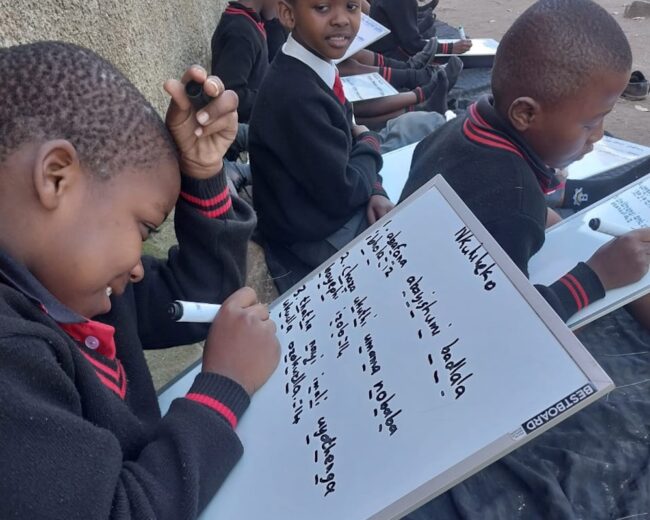
LITERACY
In 2024, we rolled out a new pilot model of the Literacy Programme within schools. By implementing the Reach out to Read structured reading approach for phonics and decoding in isiZulu every morning, our goal is to have every child from Grade R to Grade 3 reading at their appropriate grade level.
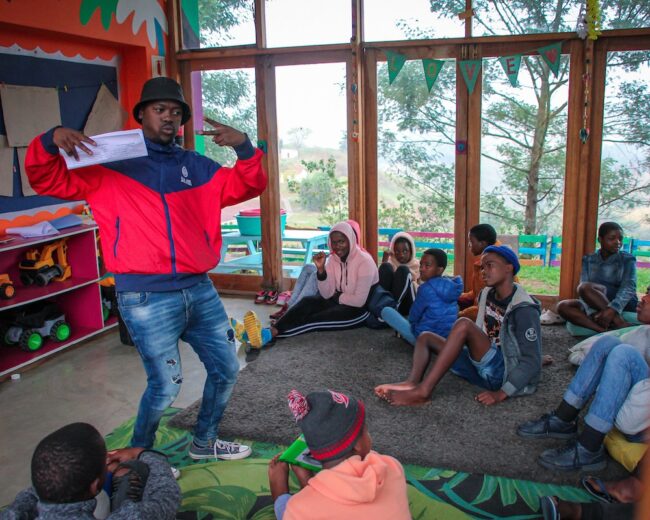
SIYAZAZI
Siyazazi means
‘KNOW YOURSELF’.
This programme aims to develop a child’s inner voice so that they have the confidence to make intentional decisions about their life. For 264 children in Grades 4-7, the programme takes place at our Thanda Community Centre on weekends and school holidays, and includes specialised classes like performing and visual arts, guiding pre-adolescent children on a journey of self-discovery and leading to a powerful transition from the role of ‘child’ to ‘capable young adult’.
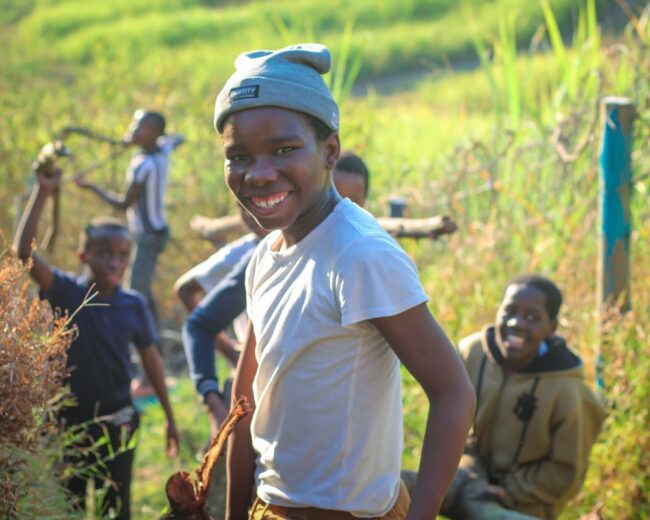
BOYS & GIRLS PROGRAMME
These gender split programmes are offered to 237 children from Grade 4 onwards.
Every weekend a smaller peer group meets overnight to delve into topics that are important for children navigating the waters of adolescence.
Subjects like gender stereotypes, puberty, power, violence, responsibility, safety and so much more are explored in the safe space created by our Thanda facilitators who act as positive role models for the children.
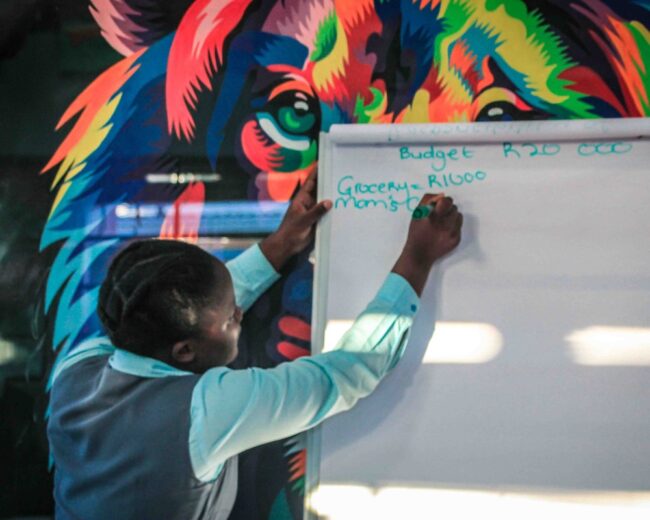
AMEQHAWEKAZI GIRLS LEADERSHIP
Amaqhawekazi means
‘HEROINE’.
This intensive Girls Leadership Programme offers 73 girls in Grades 6 and 7 a greater sense of solidarity, community responsibility, leadership, and agency, enabling improved judgement and decision making.
From finances, to digital literacy, to growing their own food, to resume writing, the girls receive training to prepare them for success in the real world.
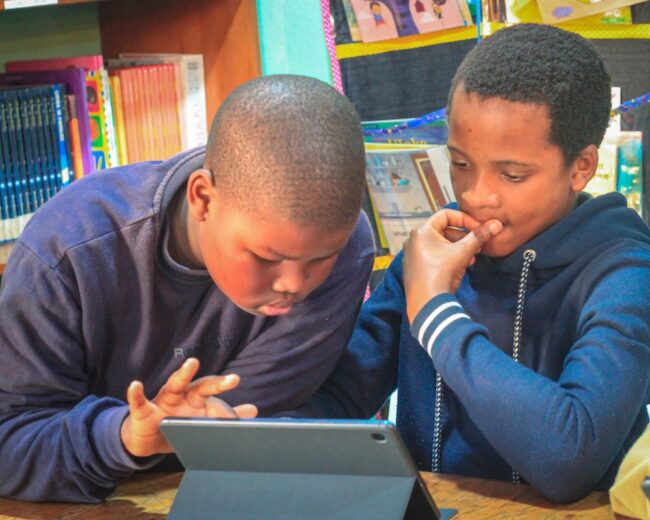
BOYS LEADERSHIP PROGRAMME
This dynamic Boys Leadership Programme engages boys in Grades 6 and 7, fostering a strong sense of solidarity, accountability, and leadership while empowering them to take charge of their decisions and future.
Through hands-on experiences, the boys develop essential life skills, including financial literacy, digital proficiency, sustainable living practices like growing their own food, and crafting resumes—equipping them with the tools needed to thrive in the real world.

UMTHOMBO
Umthombo means
‘FOUNTAIN’.
This drop-in programme runs on weekends and holidays and offers a wellspring of fun, planned activities for the benefit of all children in the community.
Umthombo ensures that Thanda’s Community Centre offers a safe haven to any and every child, regardless of whether they are enrolled in any of our other programmes.
Storybooks & Superheroes
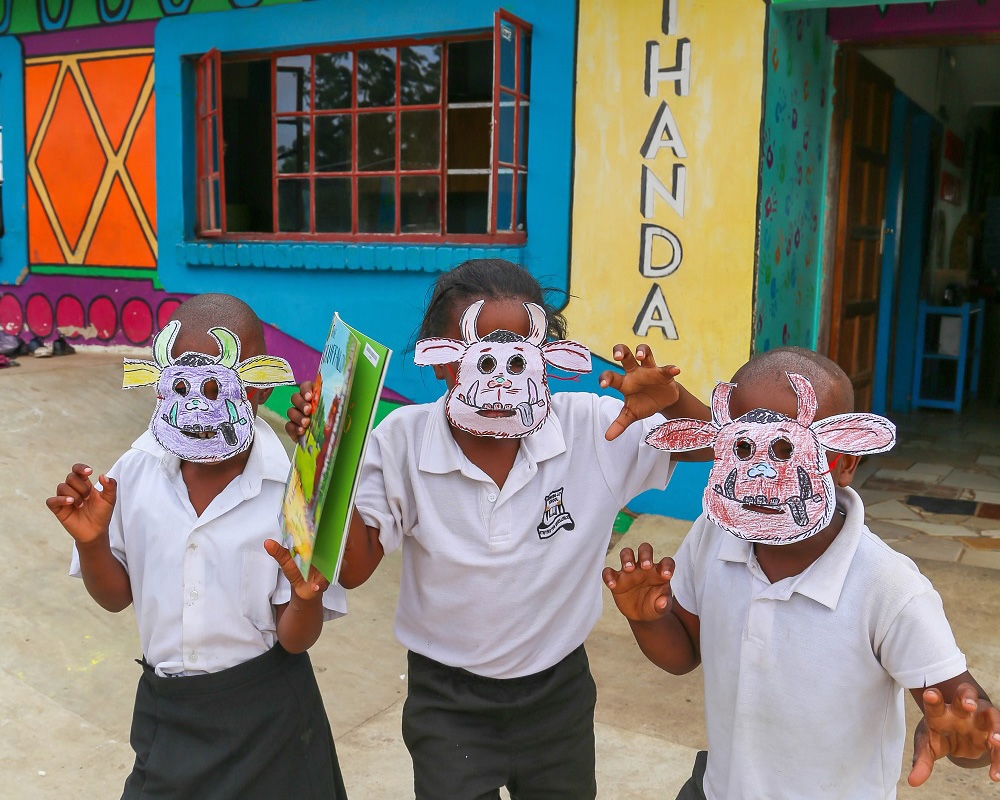
Unique storybook-inspired curricula.
We use storybooks and superheroes as themes for our lessons in order to explore complex topics in a nonthreatening way, and to explore the concept of the hero’s journey where challenges can be viewed as opportunities for making us stronger.In 2024, children borrowed 10,136 books from the Mobile Library.
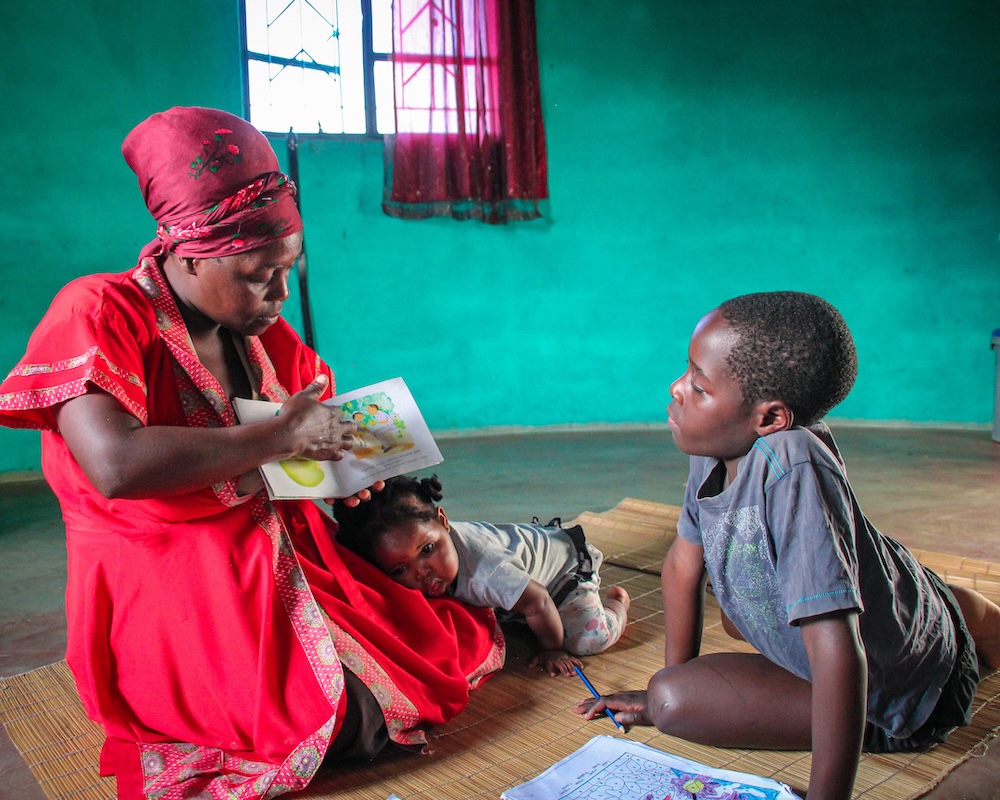
African Learning Approach
Honouring indigenous knowledge systems that emphasise cooperative learning, connection, and peer learning over competition. These values are more familiar to the children & youth we serve, and more aligned with traditional African ways of growing up together.
Artefacts
Artefacts, some local and some from other places, enable exploration of our similarities and interconnectedness with each other. By exploring history & cultures, children gain a deeper understanding of themselves and others, leading to discussions about responsibility of caring for other people and the environment.
Developing Skills
Developing valuable skills that the children are not exposed to in many other settings, such as critical thinking, empathy, and problem-solving. Children up to Gr. 7 also focus on building strong fine motor, literacy, and numeracy skills and those who are identified as falling behind are given additional support to catch up.
Life Skills
Life skills that can’t be taught from a textbook. Children learn experientially, grasping abstract traits like mastery, confidence, and perspective.
The SDQ assesses Emotional Problems, Conduct Problems, Hyperactivity Problems, Peer Problems and has a Prosocial Scale. From 2022 to 2023, girls in the Girls Leadership Programme decreased their difficulties score.
Sustainable Food Security
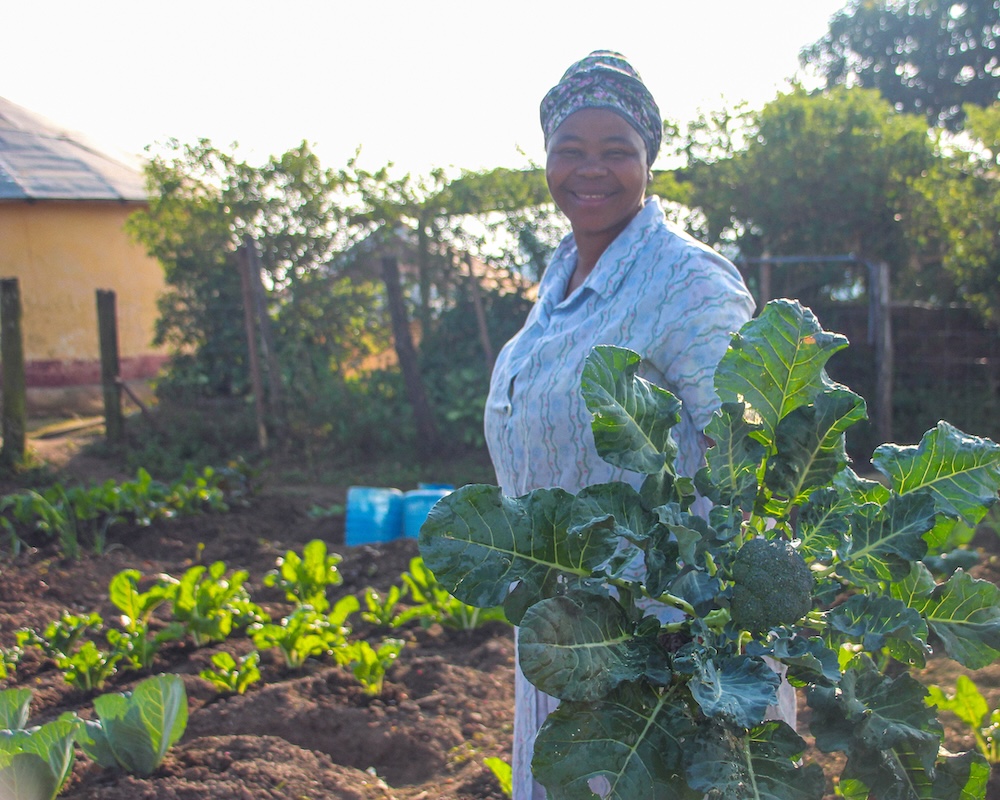
Enabling households to provide nutrition.
Good nutrition is essential for optimal development in childhood. That is why we make sure that our children are fed – not only while they are at Thanda, but at home too!
Feeding Scheme
Our feeding scheme provides a warm hearty lunch of rice, vegetables and protein to all children across our programmes (with the added benefit of having the vegetables organically grown by those in our Nisela Farming Programme)
Since 2008, we’ve served over 1.41 million meals to children!
Food Security & Economic Development Initiative
Our Food Security & Economic Development Initiative participants are mostly the parents and guardians of the children in our programmes. By equipping them with essential skills and resources, they are empowered to grow their own food, providing their families with nutritionally dense meals. This not only ensures greater household stability and resilience, but it also means that children are well-fed and optimally nourished at home.